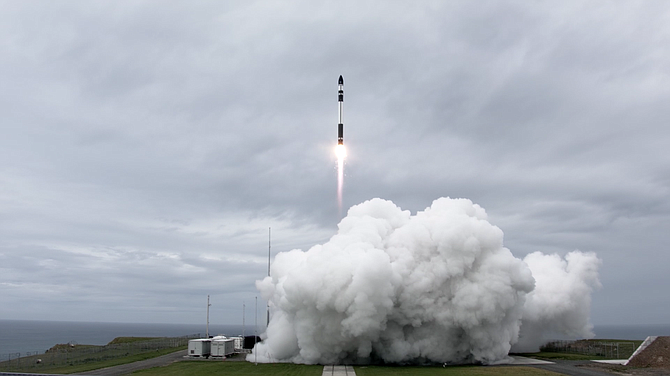The American-New Zealand operator Rocket Lab deployed ten new small Earth imaging satellites last night, making it one of the most active American operators of the year.
At the service of Canon Electronics and Planet
Called "In Focus", the fifteenth mission of the Electron micro launcher of the American-New Zealand operator Rocket Lab, started on October 28th at 21:21 UTC from the Mahia Peninsula, on the east coast of New Zealand's North Island.
Electron successfully deployed ten small commercial satellites in a 500 km circular orbit for Canon Electronics (Japan) and Planet (USA), the latter through the American broker Spaceflight.
Canon's CE-Sat 2B micro-satellite (35.5 kg at lift-off) is to demonstrate night-time imaging capability using a medium-sized telescope equipped with an ultra-high-sensitivity camera and test small telescopes adapted to cubesats.
Planet's nine Nano satellites (5 kg each) must complete the Super Dove constellation for medium-resolution Earth observation. They were launched using Rocket Lab's Maxwell dispenser.
All the payloads were replicas of the satellites lost on 4 July last year when Electron failed for the second time since it was commissioned in May 2017.
Behind SpaceX
In 13 successful missions since January 2018, the small US-New Zealand launcher has successfully deployed 65 payloads into low orbit.
With this fifth attempted mission since 31 January, Electron becomes the second most used American launcher this year, behind SpaceX's Falcon 9 (18 orbital missions) and United Launch Alliance's Atlas 5 (4 missions).

